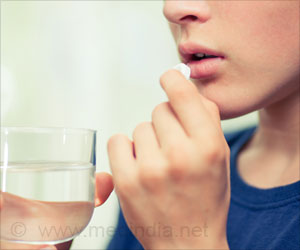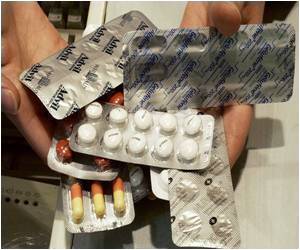- Overdose Death Rates - (https://www.drugabuse.gov/related-topics/trends-statistics/overdose-death-rates)
- Drug overdose - (http://en.wikipedia.org/wiki/drug_overdose)
What is Drug Overdose?
Drug overdose is the term that is used for ingestion of prescription drugs, alcohol, over-the-counter (OTC) medications and illegal drugs in larger amounts than recommended.
An overdose may occur due to an:
- Accidental overdose
- Intentional misuse
Accidental overdose: Occurs when a wrong drug is taken in excessive quantity. This type of overdose is common among children as it can happen when someone accidentally leaves the medication unattended or within the child's reach.
Intentional misuse: Occurs when adolescents and adults take an overdose of the drug intentionally to harm themselves as a suicide attempt or to produce euphoria.
Drug Overdose Death Statistics
Overdose can be lethal. According to the National Center for Health Statistics at the Center for Disease Control and Prevention,there were 43,982 drug overdose deaths in the United States in 2013. Among these, 22,767 deaths were due to the overdose of prescription drugs, out of which 16,235 deaths were due to an overdose of opioids.
Accidental drug overdose is stated as the leading cause of injury-related deaths in the United States for people in the age group of 35-54. Studies also show that most people who die of drug overdose often have high levels of benzodiazepines and alcohol in their body. Notable to this is the death of the famous Pop Singer Michael Jackson, who died due to propofol administered along with benzodiazepines like diazepam, lorazepam and midazolam. Celebrity, Actor Cory Monteith (Glee actor) also died due to the simultaneous intake of heroin and alcohol.
In India, Tamil Nadu had the highest number of drug overdose deaths of about 205 in 2014 while Punjab ranked second with 185 drug overdose deaths, according to the National Crime Records Bureau.
In general, people who suffer from depression and suicidal thoughts, children and elderly people who misuse prescription drugs are more prone for overdose.
What are the Signs and Symptoms of Drug Overdose?
The signs and symptoms of drug overdose may vary from person to person depending on the dose and the type of the drug taken by each individual. Sometimes, large overdoses cause only minimal effects and smaller overdoses result in severe effects which may even lead to death. The liver and kidney are organs at high risk of damage due to overdosage.
Common signs and symptoms of an overdose include:
- Nausea, vomiting
- Dizziness
- Very pale face
- Blue lips or blue fingertips
- Diarrhea
- Convulsions(seizures)
- Difficulty in breathing
- Internal bleeding
- Coma
- Hallucinations
How Do You Diagnose Drug Overdose?
Diagnosis of drug overdose is based on the following:
- Information about the drug and the dose taken by the individual is obtained from family members or caregivers.
- Drug Screening: Blood and urine analysis is done to estimate the amount of drug and its metabolites present in the body.
- Blood pH, oxygen and carbon dioxide levels are measured to evaluate lung functions.
- Electrolyte levels are used to estimate the person’s acid-base balance in the body.
- Blood Urea Nitrogen level (BUN) and creatinine tests help in indicating the kidney functions.
- Glucose test is used to determine glucose levels in the blood.
What are the First Aid Measures for Drug Overdose?
- Stop Drug Exposure - Involves termination of further exposure to the drug / poison.
- Respiration - Maintain patent airways; some may require ventilation and intubation of the airways in a hospital.
- Supportive measures - Maintain heart rate, blood pressure and body temperature.
- Stop seizures - Initiate steps to control convulsions by administering diazepam.
- Put patient on their side - If the patient is unconscious, place him immediately in a recovery position.
How Do You Treat Drug Overdose?
- Gastric lavage or pumping the stomach with water and washing out.
- Activated charcoal - is used to help bind drugs and keep them in stomach and intestine thereby reducing the amount of drug being absorbed into the blood.
- Induce vomiting - In some cases, vomiting can be induced by using syrup of ipecac.
- Intra -venous fluids - Sodium bicarbonate infusion is often used to alkalinize the urine.
- Use of specific antidotes to the drug.
- Hemodialysis - This helps enhance the removal of the drug from the blood.
What is an ANTIDOTE?
An antidote is a drug or an agent that counteracts the effects of a drug or a poison overdose. It helps in neutralizing the harmful effects of the drug or poison.
Some of the antidotes used for reversing the drug overdose are as follows:
| DRUG OVERDOSE | ANTIDOTE USED |
| Organophosphate | Atropine |
| Paracetamol | N -Acetylcysteine |
| Benzodiazepines | Flumazenil |
| Opiates | Naloxone |
| Iron | Desferrioxamine |
| Digoxin | Digibind (Digoxin antibody) |
| Cyanides | Nitrites |
| Ethylene glycol/Methanol | Ethanol/Fomepizole |
| Heparin | Protamine sulphate |
Common drugs that need treatment due to overdose include diazepam, morphine, paracetamol, aspirin, barbiturates, iron, digoxin and heparin.
Diazepam Overdose
Diazepam belongs to the class of benzodiazepines. It is commonly used as sedative and hypnotic and is also used as an anti-anxiety and anti-convulsant agent.
An overdose may result in symptoms like:
- Drowsiness
- Mental confusion
- Hypotension or fall in blood pressure
- Impaired balance and coordination
- Coma
Specific Treatment:
- Supportive measures: Involves providing artificial respiration, maintenance of blood pressure and stabilization of cardiovascular functions.
- Antidote: Flumazenil 0.2mg/min is injected into the vein till the patient regains consciousness. This drug is used in the case of severe respiratory depression and cardiovascular complications.
Morphine Overdose
Morphine is a Schedule X drug and has to be prescribed with precaution. Addiction to morphine has been noted among the public and also medical professionals. However, addicts can tolerate higher dose than a normal person.
Morphine overdose can be accidental, suicidal or seen in drug abusers. The human lethal dose is estimated to be 250 mg.
Some of the signs of morphine overdose include:
- Pinpoint pupil
- Cyanosis or bluish discoloration of the skin and mucous membranes due to low blood oxygen levels
- Stupor and coma
- Flaccidity of limbs
- Decreased breathing rate
- Respiratory failurewhich can lead to death
Specific Treatment:
- Supportive treatment: Involves providing respiratory support, and gastric lavage with potassium permanganate.
- Antidote: Naloxone 0.4-0.8mg is repeatedly given as an injection into a vein every 2-3 minutes till respiratory rate picks up. Because of its short duration of action, repetitive dosage may be required every 1-4 hours.
Paracetamol Overdose
Doses of paracetamol greater than 150mg/kg or greater than 10g in adults result in an overdose. Poisoning due to paracetamol occurs especially in small children who have a liver enzyme problem called low hepatic glucuronide conjugating ability.
Most common effects include:
Abdominal pain and nausea which later progresses to liver failure.
Specific Treatment:
- Supportive treatment: Initial treatment involves gastric lavage.
- Antidote: N-Acetylcysteine 150mg/kg is given by slow intravenous injection. The antidote prevents excessive damage to the liver.
- Because of the wide availability paired with high toxicity, paracetamol has a high potential for overdose.
Aspirin Overdose Or Salicylism
Aspirin, also known as Acetyl Salicylic acid, belongs to the class of Non-steroidal anti-inflammatory agents. It helps in the prevention of heart attack and stroke due to its anti-platelet effect. An overdose will result in the accumulation of salicylates in the body resulting in a condition known as salicylism. Common effects of overdosage include:
- Nausea and vomiting
- Abdominal pain
- Stomach ulcers
- Tinnitus (Ringing in the ears)
- Dizziness
- Seizures
- Cerebral edema (accumulation of fluid in the brain)
Specific Treatment:
Initial measures:
- Resuscitation is carried out to recover the patient from unconsciousness.
- Gastric decontamination: Activated charcoal is used to adsorb the aspirin in the digestive tract and prevent its entry into the circulation.
- Alkalinization of urine: Sodium bicarbonate injection is given to alkalinize the urine, so that more drug can be excreted.
- Hemodialysis: Dialysis of blood helps enhance the removal of salicylate from blood.
Barbiturate Poisoning
Acute barbiturate poisoning occurs mostly as suicidal and sometimes on accidental overuse. Drugs like butobarbitone and phentobarbitone are short-acting while phenobarbitone is long-acting. Manifestations are due to central nervous system (CNS) depression. The lethal dose is about 2-3g for short-acting barbiturates and 5-10g for long-acting barbiturates.
Specific Treatment:
- Gastric lavage: A suspension of activated charcoal in the stomach will prevent the absorption of drug from the intestines.
- Supportive measures: Keep airways patent, maintain blood volume by fluid infusion.
- Alkaline diuresis: 1meq/kg IV of sodium bicarbonate with or without mannitol is helpful to alkalinize the urine and thereby promote the excretion of the drug.
- Hemodialysis and Hemoperfusion: Highly effective in removing barbiturates from the blood.
Iron Poisoning:
This usually occurs when there is an intake of more than 60mg/kg or 10-20g equivalent iron tablets.
Manifestations of iron toxicity include:
- Hematemesis (vomiting of blood)
- Diarrhea
- Cyanosis
- Shock due to extreme fall in blood pressure
- Cardiovascular collapse
- Death
Specific Antidote: Desferrioxamine 0.5-1g is given intramuscularly for every 4-12 hours.
Digoxin Overdose
Digoxin overdose may result in serious cardiac effects like irregular heartbeat, ventricular tachycardia (increase in heart rate) and heart blocks.
Specific Treatment: Digibind, an antibody is used in the treatment of digoxin toxicity.
Heparin Overdose
Overdose of heparin may result in severe bleeding after cardiovascular surgery.
Specific Treatment: 1mg of Protamine sulphate is administered by slow IV for every 100 IU of heparin. Protamine sulphate is the specific antidote obtained from the sperm of salmon and certain species of fish for reversing the effects of heparin.
How Do You Prevent Drug Overdose?
Measures to prevent drug overdosage include the following:
- Child resistant caps should be used in drug bottles so that children cannot access medications.
- All medications must be placed in a safe and secure place preferably in a locked cabinet.
- Use of harmful drugs by mentally ill and adolescents should be taken care of by family members.
Proper patient counseling and awareness about drug overdose and its treatment should be given so that people know the harmful effects of the drug. International Overdose Awareness Day is held on August 31st every year which aims to raise the awareness about overdose prevention, promote policies and reduce the stigma of drug-related death.








